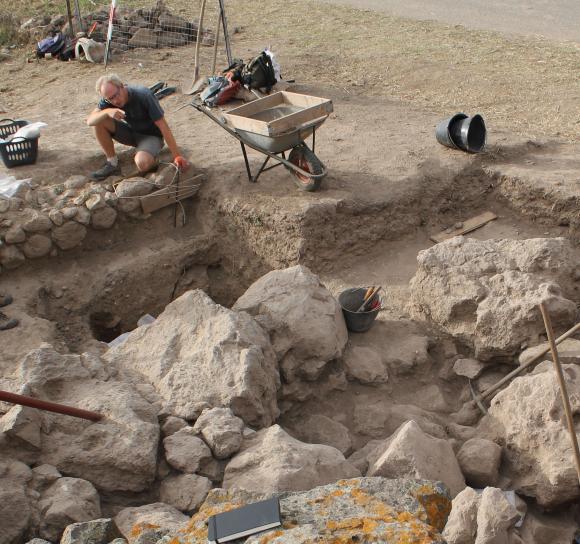PROVIDENCE, R.I. [Brown University] — Peter Van Dommelen, the Joukowsky Family Professor of Archaeology and professor of anthropology, has been awarded a National Geographic research and exploration grant to conduct archeological and environmental fieldwork in Sardinia, Italy, this summer.
The fieldwork is part of Van Dommelen’s ongoing archaeological excavation of the nuraghe S’Urachi, a famous dry-stone walled tower in west-central Sardinia. The site dates to the Bronze Age, but research concentrates on the later Iron Age and Classical period. Through the excavation, Van Dommelen hopes to understand how colonial domination and economic exploitation unfolded and interacted with local communities in the Phoenician-Punic period.
The $20,000 National Geographic grant will allow Van Dommelen to study ancient agricultural practices by investigating potential and actual ancient land use in the wider landscape and by analyzing on-site botanical and biological remains of crop processing and food consumption. His environmental fieldwork will involve soil and geomorphological surveys, inspection of exposed soil sections, augering and analysis of excavated botanical and faunal samples.
“Careful study of agrarian practices at and around a major pre-existing indigenous settlement site like S’Urachi that remained inhabited throughout the Phoenician-Punic period will provide fresh insights into the extent and ways that indigenous traditions and colonial innovations of rural life and agrarian production were combined or rejected, as local communities adapted their own needs to colonial rule and its demands,” Van Dommelen wrote in his grant application.
More information about the S’Urachi project can be found online.

